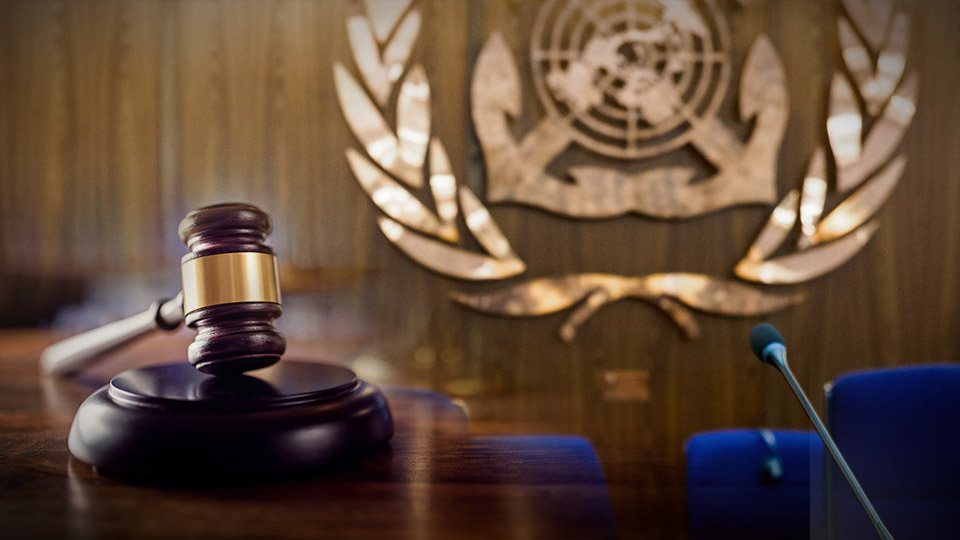IMO advances work on new fair treatment guidelines
Published: 05 April 2023
When the Legal Committee (LEG) of the International Maritime Organization (IMO) met last week in London, one of the many important topics on the agenda was the development of Guidelines on fair treatment of seafarers detained on suspicion of committing maritime crimes. Further to discussions in a working group, the committee agreed to establish a correspondence group to further develop the Guidelines and the concept of a database of incidents involving detention of seafarers suspected of committing maritime crimes to be further considered at the next LEG session.
BIMCO supports the development of guidelines as well as related work to develop a database and took the opportunity to inform the committee that BIMCO is planning activities to raise awareness about drug smuggling in South and Central America, where it seems there is a lack of understanding of how smugglers abuse ships without knowledge of the crew and/or the owner.
Abandonment of seafarers
LEG also considered the abandonment of seafarers and noted the dramatic increase in the numbers reported to the joint database on abandonment of seafarers set up by the IMO and the International Labour Organization (ILO). Flag and port states were urged to take more action to ensure the presence of financial security as required by the ILO Maritime Labour Convention, 2006 and take appropriate action when such security is not in place.
Risks posed by “dark fleet”
Concerns were raised at the meeting about the increase in ship-to-ship transfers in the open ocean which undermine the international regime with respect to maritime safety, environmental protection and liability and compensation. LEG was also informed that a substantial fleet of tankers, mainly older ships, including some that have not been inspected recently and which have substandard maintenance, unclear ownership and lack of insurance, are being operated as a “dark fleet” to circumvent sanctions. The dark fleet poses a high risk of incidents particularly when engaged in ship-to-ship transfers.
The committee encouraged flag states to ensure that tankers under their flag adhere to measures which lawfully prohibit or regulate ship-to-ship transfers and port states to ensure enforcement of the safety and liability conventions on these ships and ensure that ship-to-ship transfer operations are conducted in accordance with applicable safety requirements in IMO conventions.
Fraudulent registration of ships
The committee continued earlier discussions on measures to prevent unlawful practices associated with the fraudulent registration and fraudulent registries of ships. Concern was expressed about the impact of fraudulent registration, particularly on seafarers but also potentially on the expansion of the “dark fleet”. There was broad support in principle for the creation of a database for flag and port states to share information on fraudulently registered ships and registries and, also, to develop methods for validating the authenticity of ship certificates. A correspondence group was established amongst other to define elements of due diligence to be exercised in the process of ship registration.
Measures to assess the need to amend liability limits
Work continued to consider measures to transparently assess the need to amend the limits of liability in the IMO liability and compensation conventions, initially limited to the Convention on Limitation of Liability for Maritime Claims, 1976, as amended by the 1996 Protocol. A working group developed principles and policy considerations to be taken into account when developing methodologies to assess the need to amend liability limits and agreed to re-establish the intersessional correspondence group with a view to further advancing work ahead of the next session of LEG.
Judicial Sale of Ships
The new Convention on the Judicial Sale of Ships adopted by the United Nations Commission on International Trade Law (UNCITRAL) was introduced by the Comité Maritime International (CMI) and received support from members and observer delegations of the committee. BIMCO, which was involved in the drafting work via the International Chamber of Shipping as well as participation in a CMI co-hosted Colloquium in Malta and an UNCITRAL meeting, both taking place in 2018, also took the opportunity to reiterate its support for the Convention. A Symposium arranged by CMI, UNCITRAL and the Government of Malta will be held on 26 April 2023 at which Director for Contracts & Support Stinne Taiger Ivø will reiterate BIMCO’s support to the Convention and encourage ratification and rapid entry into force of the new regime.
HNS Convention
Noting the status of work on the Protocol of 2010 to the International Convention on Liability and Compensation for Damage in Connection with the Carriage of Hazardous and Noxious Substances by Sea, 1996 (2010 HNS Protocol), member states were encouraged to ratify and bring into force the 2010 HNS Protocol as soon as possible. The Protocol establishes a two-tier system for compensation to be paid in the event of accidents at sea involving hazardous and noxious substances such as chemicals and thereby represents the missing link needed to complete the international liability and compensation regime set up by the IMO.
The committee also adopted new Guidelines for port and flag states on how to deal with seafarer abandonment cases and, separately, information pamphlets on the Bunkers Convention, Civil Liability Convention and Wreck Removal Convention.
The next session of the Legal Committee will take place in spring 2024.

